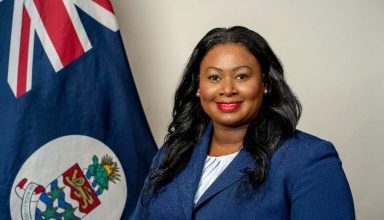Jamaican: First Black to preside over Federal Reserve Bank

Women’s History:
Jamaica-born Susan M. Collins is making history.
First of her race to head one of the 12 central banks created 108 years ago in the USA, the 63-year-old economist was named president of the Federal Reserve Bank of Boston last month.
“After an intensive search, we are thrilled to appoint this exceptionally well-qualified person to be the bank’s president and a key leader in the Federal Reserve System,” Dr. Christina Paxson, President of Brown University and chair of the Boston Fed board who led the search committee announced.
Collins was approved by the Federal’s Board of Governors.
“Dr. Collins brings the technical expertise and insight to contribute to policymaking and the leadership ability to head the organization,” Paxson added.
“It is a remarkable advancement when you consider that America had a Black president before any of the 12 regional banks had a Black president,” Aaron Klein, senior fellow in economic studies at the Brookings Institution said.
The statement points to a long standing dominance by white men to control the financial system, and the need for reform President Joe Biden suggested would diversify the financial system.
“Hopefully Dr. Collins will bring a fresh perspective to the Fed, which could benefit from new thinking,” Klein added.
Collins is only second to Cathy Minehan who made history in 1994 when she was named the first of her gender to helm the Boston position.
Collins was not yet a citizen then, the Caribbean immigrant pledged allegiance in 1997.
Minehan served until 2007.
Of the belief she could make a difference, like her fellow Harvard alum, Supreme Court Justice nominee Ketanji Brown Jackson said during her recent confirmation hearings, “If I work hard I can do anything in America.”
After arriving here from Kingston, her father worked at the United Nations as a social anthropologist. Her deceased mother was a librarian. Together they lived in Manhattan.
She graduated summa cum laude from Harvard University in 1980. Collins earned her Ph. D in economics at Massachusetts Institute of Technology four years later. And returned to Harvard to teach following completion of her studies.
She later moved to Washington, where her posts included senior staff economist at the President’s Council of Economic Advisers in the Herbert W. Bush administration, professor at Georgetown University, senior fellow in economic studies at the Brookings Institution, and visiting scholar at the International Monetary Fund.
She served for nine years as a director at the Chicago Fed.
Currently serving as the University of Michigan’s provost and executive vice president for academic affairs she has been in the position since 2020. At the end of the semester she will assume her new role leading 1,215 employees throughout the New England district.
Reportedly inspired to become an economist by observing social and financial hardships in Jamaica, Collins was determined to make an impact.
On visits with her parents to the Caribbean island she witnessed questionable living standards.
“Those summer visits raised all kinds of questions,” she told AEA newsletter. “Why were living standards so different? Even wealthier people in Jamaica suffered from water shut-offs or other hardships…
“It was clear to me very early on that contexts matter. If you grow up with these questions, it’s no surprise to become an international economist,” Collins said.
“Jamaica has a tradition of really strong women and so high-powered careers were supported,” Collins said her parents encouraged her pursuit.
A press statement said her appointment will enable her to oversee the Boston Federal’s monetary policy and economic research, its operational role in the U.S. financial payments system, bank supervision and community development.
The wife and mother of two recently told an interviewer her primary focus will be two-fold –on traditional Fed concerns, — the labor market– and community-oriented initiatives.
Collins will also have a voice on the central bank’s Federal Open Market Committee, whose mandate is to promote full employment and stable consumer prices.
“I’ll note that a common theme throughout my career has been commitment to the mission of public service to improve lives – whether through education, research or policy,” Collins said.
President Biden nominated Sarah Bloom Raskin to be vice chair for supervision. He also named Philip Jefferson and economists Lisa Cook as governors.
If Cook is confirmed in the Senate she will become the first Black woman to serve on the Board of Governors.





